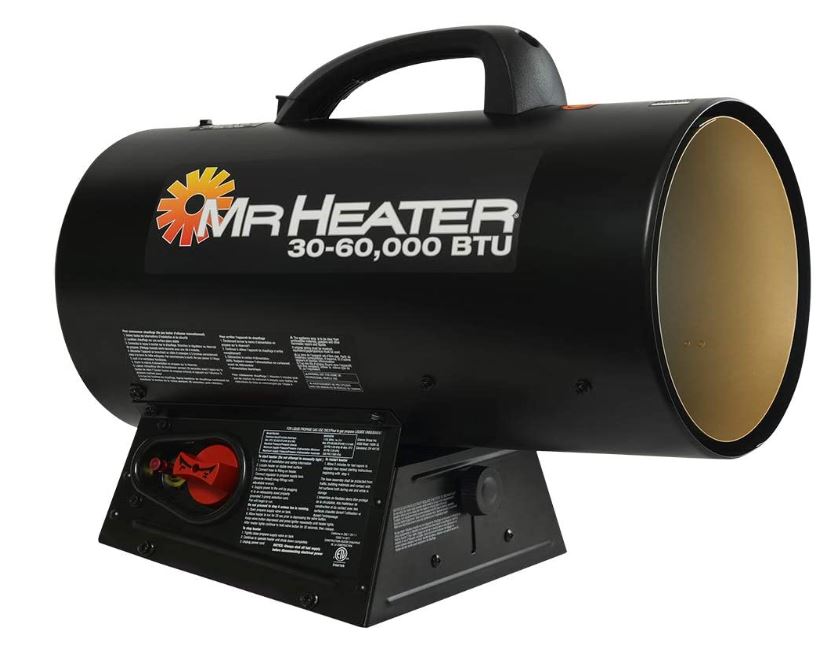Space Heater Buying Guide – How To Choose The Best Option For Your Home

Choosing the perfect space heater for your home can be a challenging task because there are so many options.
This guide will take a look at the pros and cons of all the different options including different types of electrical and gas heaters. We will also look at the most important things to look for like energy consumption and safety.
Heaters are expensive and the wrong one might not be able to do the job it was bought for. For this reason, we put together the ultimate space heater buying guide so that you can choose the best option for your home.
Things You Need To Consider When Making The Purchase
Many important aspects need to be considered before purchasing a space heater. The points below will help you to choose the right one for your needs.
Size Of The Room To Be Heated
The size of the room will determine the size of the heater. You don’t want to run a heater too big or you will waste energy, and you don’t want to run a heater too small or you will not be able to warm the room.
Type Of Heater
Each type of heater has its pros and cons so it is up to you to look at the different types and decide which is best for your needs. The most popular types are electric and gas heaters – there are many options in each of these categories and we will look at them more later.
Electric vs Gas Heater
As the names suggest, electric heaters use electricity and gas heaters use gas to operate. There are lots of different types of each so we will discuss them in more detail later on.
Energy Consumption
Electricity is one of the biggest expenses you will have so comparing the energy consumption of the different heaters will help you save a lot of money in the long run.
How Fast
The amount of time that the heater takes to make a space work is an important factor. If you want something that will give instant heat you are looking for something like a convector heater, but when you want to slowly heat the entire room you might prefer an oil-filled radiator.
Safety
Safety is always the main concern with heaters because they work with generating heat so it might be possible for them to start a fire. There are lots of built-in safety features these days, but it will depend on the type and model of the heater.
Noice
Noice is a big problem for many people, especially if you want to run the heater in a quiet space like a work office or the bedroom at night.
Budget
And lastly, budget. The different types of heaters can vary greatly in price so it will depend on what your budget is.
The Different Types Of Heaters
There are lots of different types of heaters and all have their pros and cons. The main two categories are electric and gas heaters and we will look at both of these below.
For a comprehensive look at the different types of heaters, you can also have a look at this video guide.
Best Electric and Gas Heaters
-
1 – Convector Heater
-
2 – Oil Filled Radiators
-
3 – Fan Heaters
-
4 – Ceramic Heaters
-
5 – Panel Heaters
-
6 – Fireplace Heaters
-
7 – Catalytic Gas Heaters
-
8 – Infrared Gas Heaters
-
9 – Conventional Kerosene Heaters
-
10 – Forced Air Kerosene Heater
THE TOP 3
Electric Heaters
#1 – Convector Heater
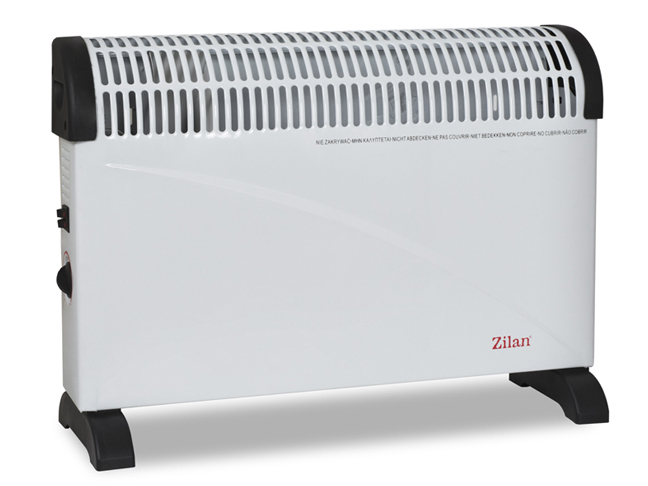
Overview
An electrical heater that uses convection technology to create heat.
Key Features
- Uses convection currents to heat and circulate air.
Pros
- Lightweight
- Convector heaters are lightweight and easy to move around.
Cons
- Slow to warm big spaces
- These heaters work better for smaller spaces and will take longer to heat a bigger space.
Performance/Efficiency
They run quite well and efficiently, especially if you want short bursts of warmth.
What Space Does It Suit?
There are different sizes available to suit different size rooms/areas.
Who Should Consider Buying It?
Anyone who wants to warm smaller spaces or who wants to be able to have instant heat.
Other Factors To Consider
They also come with thermostats and timers.
Overall Rating: 88 /100
Check Out More Reviews Here:
#2 – Oil Filled Radiators
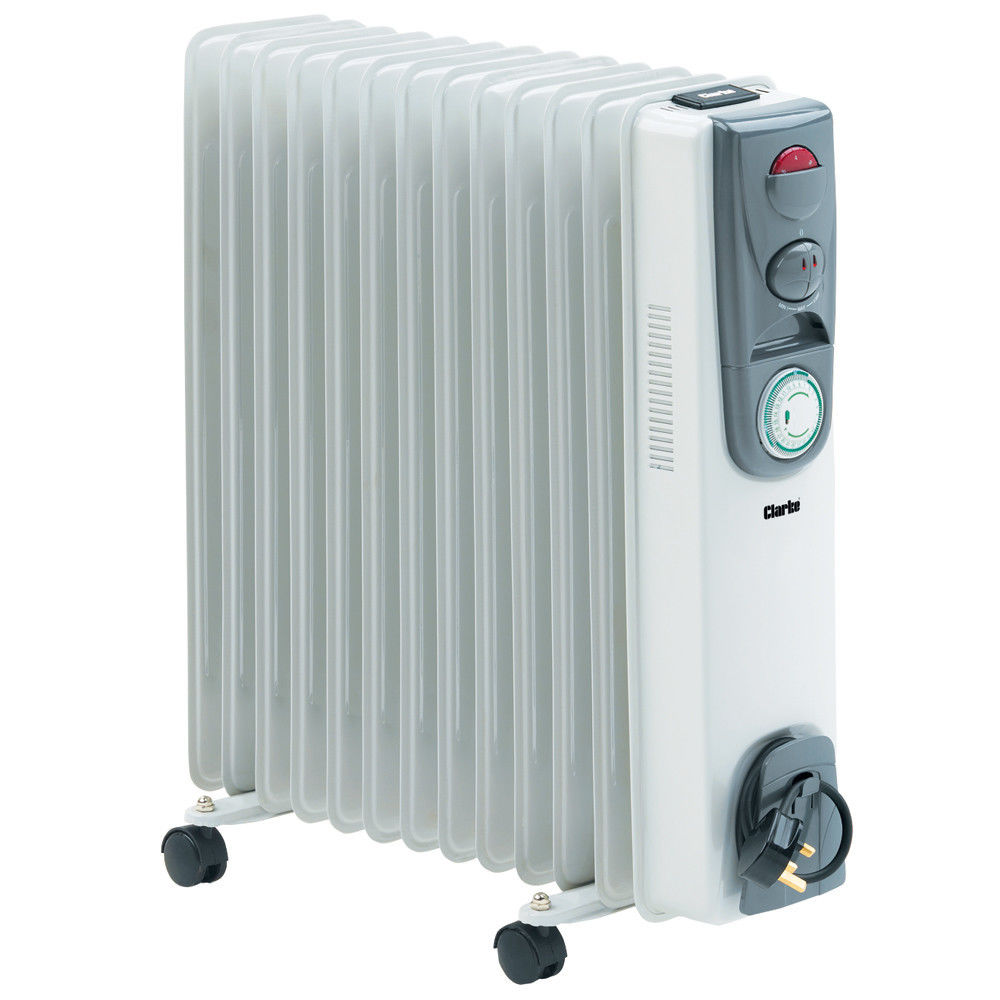
Overview
They are filled with oil that heats up.
Key Features
- Warms a space with radiant heat.
Pros
- Keeps heat
- Even after switched off it keeps heat.
Cons
- Heavyweight
- This makes them hard to move around.
Performance/Efficiency
They take a while to heat up but then they run well. They do use quite a bit of electricity though.
What Space Does It Suit?
Bigger rooms like living rooms.
Who Should Consider Buying It?
A homeowner who wants to effectively heat one room at a time.
Other Factors To Consider
You can also change the heat settings from low to high.
Overall Rating: 90 /100
Check Out More Reviews Here:
#3 – Fan Heaters
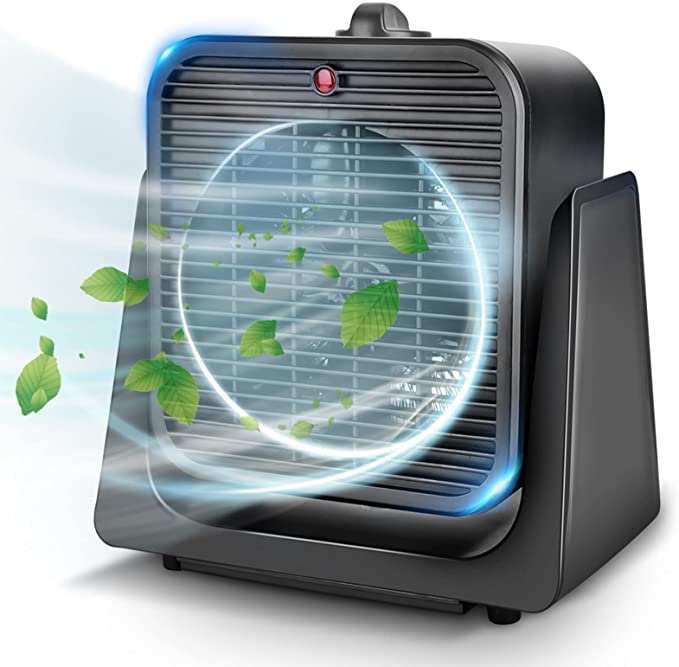
Overview
Fan heaters run a fan over a heated element.
Key Features
- A fan is used to send out warm air.
Pros
- Small
- They are very mobile so can be used on tables and other furniture.
Cons
- Limited heat
- Their heat is a bit limited and they are not as able to heat bigger rooms.
Performance/Efficiency
They are efficient at spreading heat in small areas and use little electricity.
What Space Does It Suit?
Works best when used in a small space like a desk.
Who Should Consider Buying It?
Anyone who wants an affordable option to heat a small space.
Other Factors To Consider
They heat up instantly.
Overall Rating: 80/100
Check Out More Reviews Here:
#4 – Ceramic Heaters
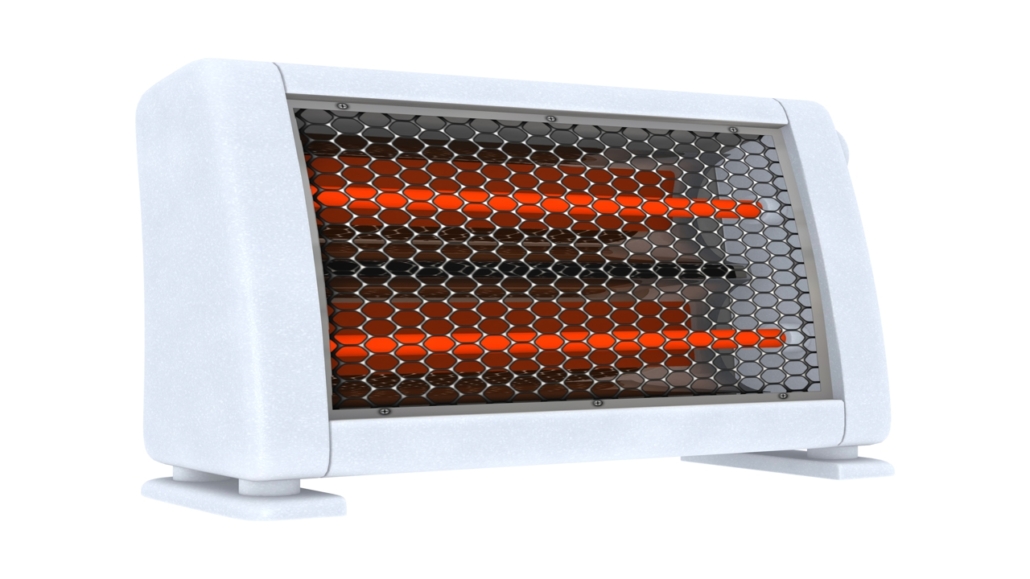
Overview
Released radiant heat from a ceramic heating element.
Key Features
- It has a heating element made from ceramic.
Pros
- Affordable
- Both the purchase and operating costs are affordable.
Cons
- Limited heating
- They will take a bit longer to warm bigger spaces well.
Performance/Efficiency
More efficient than many other heaters.
What Space Does It Suit?
Small spaces like an office or bathroom.
Who Should Consider Buying It?
Anyone with a small space to warm.
Other Factors To Consider
Comes with timers and heat settings.
Overall Rating: 90/100
Check Out More Reviews Here:
#5 – Panel Heaters

Overview
Heats a panel to release radiant heat.
Key Features
- Heated panels disperse heat.
Pros
- Focusses heating
- Can be used to warm you where you sit.
Cons
Small areas only
The panel heaters do not warm big rooms well.
Performance/Efficiency
They are instant and efficient, but best for small areas or direct use.
What Space Does It Suit?
Small work and living spaces.
Who Should Consider Buying It?
Anyone on a budget with small spaces to warm.
Other Factors To Consider
The heat is instant.
Overall Rating: 84/100
Check Out More Reviews Here:
#6 – Fireplace Heaters
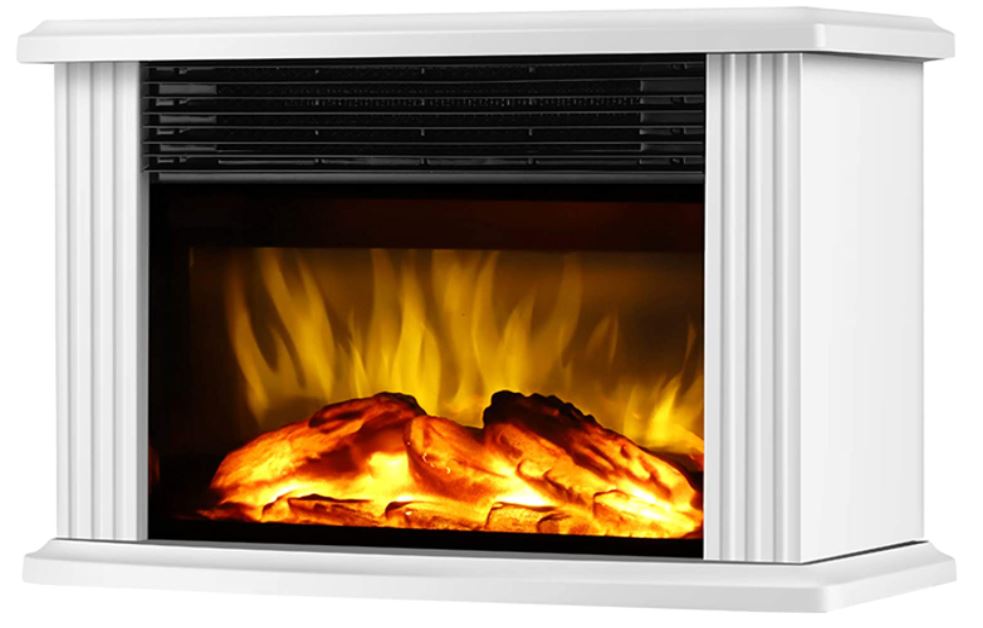
Overview
Resembles a fireplace, but used electricity to create heat.
Key Features
- A replacement for traditional fireplaces.
Pros
- Safe
- Create the same feel as a fireplace but with guaranteed safety.
Cons
- Not very mobile
- Normally they are bigger so they cannot be easily moved around.
Performance/Efficiency
They are some of the most efficient heaters.
What Space Does It Suit?
Any space from small to big.
Who Should Consider Buying It?
Homeowners who want a fireplace ambiance.
Other Factors To Consider
They can take longer to heat up.
Overall Rating: 90/100
Check Out More Reviews Here:
Gas Heaters
#1 – Catalytic Gas Heaters
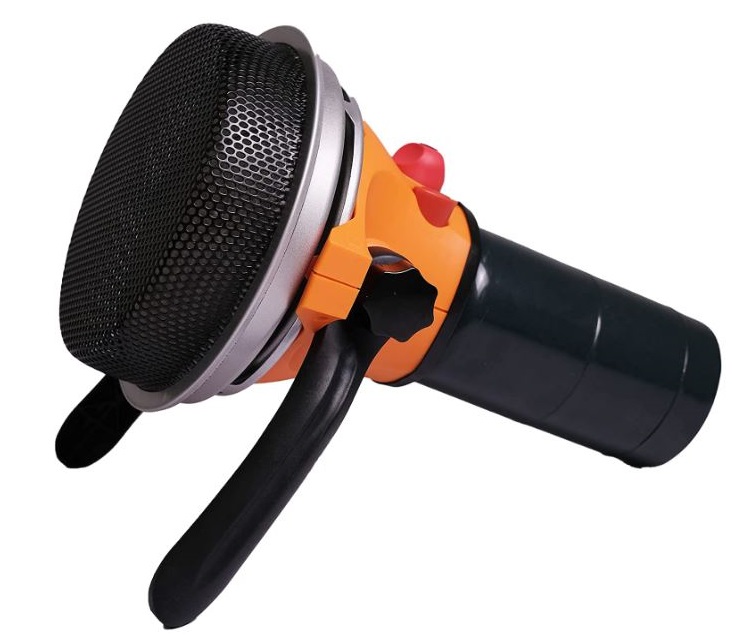
Overview
Uses catalyzed chemical reactions to create heat.
Key Features
- Radiant heating by using gas.
Pros
- Very efficient
- You can get a lot of heat without using much gas.
Cons
- Bulky
- Difficult to move around in the house.
Performance/Efficiency
Very efficient with gas usage.
What Space Does It Suit?
Larger spaces like living rooms.
Who Should Consider Buying It?
Someone with a bigger house.
Other Factors To Consider
No open flame is used so it is safer to use.
Overall Rating: 85 /100
Check Out More Reviews Here:
#2 – Infrared Gas Heaters
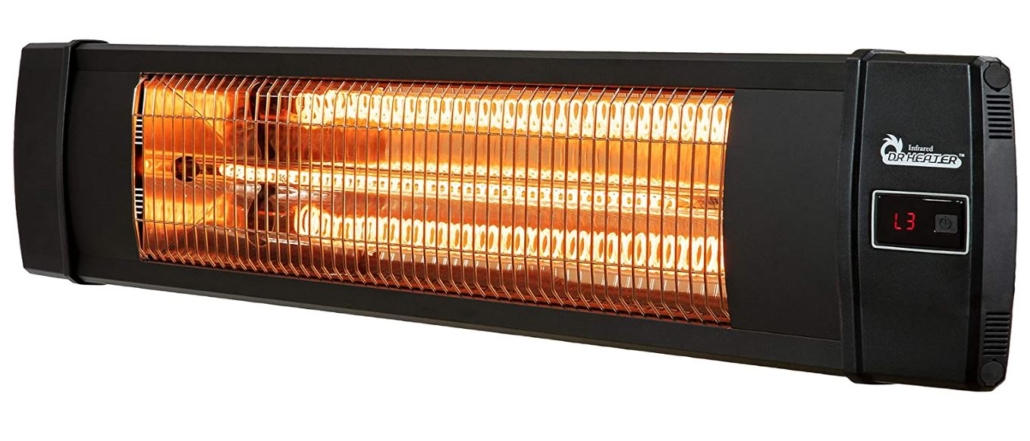
Overview
Uses gas to create convective and radiant infrared heat.
Key Features
- Burns gas internally so does not pollute the air.
Pros
- Clean
- Does not create any harmful pollutants.
Cons
- Bulky
- Big in size so does not move around easily.
Performance/Efficiency
100% efficient at creating heat from the gas it uses.
What Space Does It Suit?
Bigger spaces like living rooms.
Who Should Consider Buying It?
Anyone with a big room or home to heat.
Other Factors To Consider
Only good for indoor use.
Overall Rating: 88 /100
Check Out More Reviews Here:
#3 – Conventional Kerosene Heaters
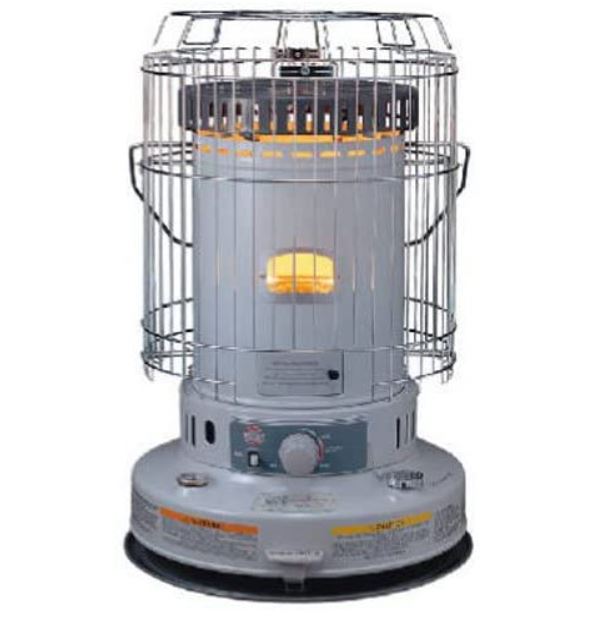
Overview
Uses a flame to create convection heat.
Key Features
- Takes in cold air and releases warm air.
Pros
- Instant
- Can be used to create instant heat.
Cons
- Hazardous
- Kerosene heaters release dangerous gasses.
Performance/Efficiency
Earlier models are less efficient.
What Space Does It Suit?
Any space.
Who Should Consider Buying It?
Anyone looking to heat ventilated spaces.
Other Factors To Consider
Newer models also use batteries.
Overall Rating: 60/100
Check Out More Reviews Here:
#4 – Forced Air Kerosene Heater
Overview
Can use both kerosene and electricity to operate.
Key Features
- Uses inverter technology to create heat.
Pros
- Effective gas usage
- Uses less gas than conventional models.
Cons
- Odor
- They still release a small number of odors.
Performance/Efficiency
Decent performance and efficiency.
What Space Does It Suit?
Larger spaces.
Who Should Consider Buying It?
Anyone wanting to heat ventilated spaces.
Other Factors To Consider
Less safe due to gas release.
Overall Rating: 65/100
Check Out More Reviews Here:
Electric vs Gas Heater
Electrical heaters are great for instant heat and for running heaters for longer periods while gas heaters are more affordable to run and better for outdoor use. Electric heaters are generally more mobile also because gas heaters need a big gas bottle to operate.
Convector Heater vs Oil Radiator
Convector heaters heat up quickly compared to oil radiators that take a long time to get warm. Which one you choose will depend on how soon and for how long you need heating.
Convector Heater vs Fan Heater
Both of these are very quick to create heat, but one uses a fan to push air and one uses convection (but sometimes also a fan). It depends if you like a fan pushing hot air or not.
Convector Heater vs Panel Heater
Both are lightweight and cost-effective. The choice comes down to a preference between convection heat and radiant heat.
Convector Heater vs Ceramic Heater
Convector heaters are more lightweight and more mobile compared to ceramic heaters. Ceramic heaters heat a ceramic plate so they need a more flat and stable surface.
Convector Heater vs Storage Heater
The main difference between these two is that the convector heater only releases heat when it is running, but a storage heater can store thermal energy.
Fan Heaters vs Oil Heaters
Fan heaters can create quick and instant heat by blowing air over a heated element. Oil heaters in comparison, warm up slowly and release radiant heat. Larger spaces will warm up better with an oil heater.
Fan Heaters vs Ceramic Heaters
Fan heaters can be very small and portable whereas ceramic heaters are bigger, more fragile, and less portable. If you want something that you can move around easily then a fan heater will work best.
Oil Heaters vs Infrared Heaters
Both of these work very well to heat larger spaces and both are big and heavy heaters. Oil heaters are slightly better because you can keep them running through the night without too much risk.
Oil Heaters vs Central Heating
Oil heaters have an element inside that heats the oil while central heating uses a boiler to warm water externally and then uses a network of pipes to spread out the heat.
Oil Heaters vs Halogen Heater
Halogen heaters are also known as radiant heaters and they work best for smaller spaces while oil heaters are great to use in larger spaces.
What Are The Best Space Heaters
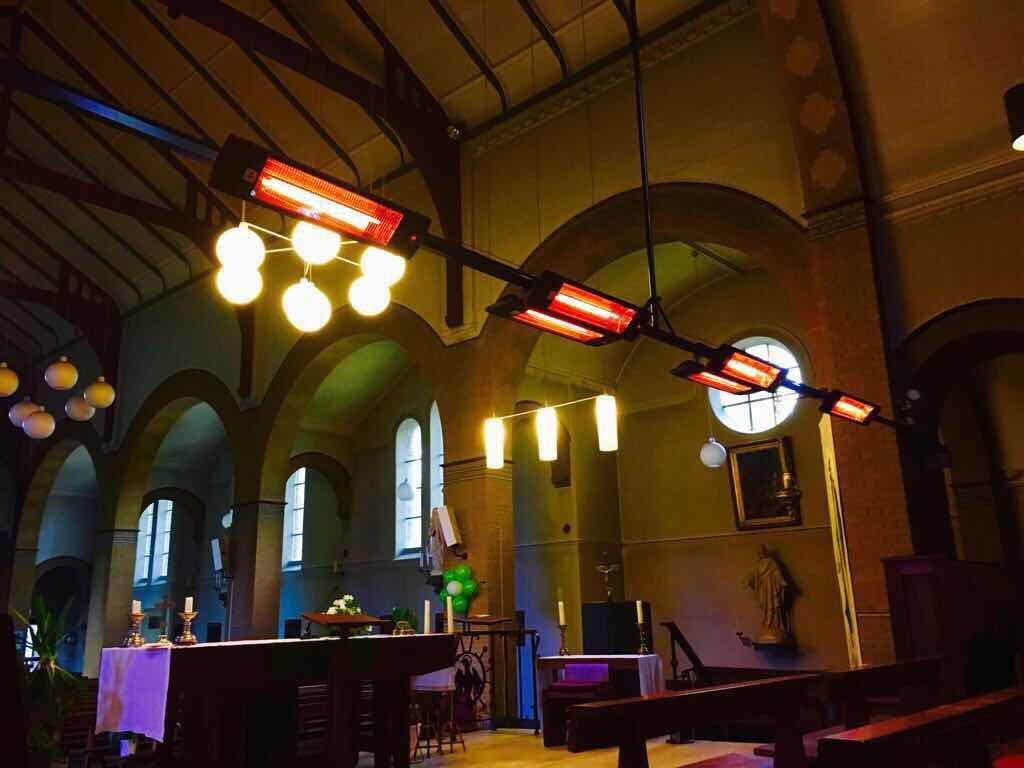
Different heaters are better in different situations so it will depend on your needs. Overall we find a ceramic heater with a fan to be the best space heater. NY Times tested a bunch of heaters and they found the Vornado VH200 to be the best.
What Are The 3 Most Important Things You Want From A Space Heater?
Which Is The Most Effective
Heaters cost a lot of money to buy and run so one of the most important things you want from a heater is effectiveness. It should work well.
Which Is The Safest
Safety is probably the most important aspect. You do not want to put your house or your family in danger. Some heaters are safer than others and some have additional safety features.
Which Is The Most Energy Efficient
In terms of energy efficiency, you want a space heater to turn as much as possible of the energy it uses into heat. Otherwise, you are paying for energy that goes to waste.
Frequently Asked Questions (FAQ)

Q: What Type Of Space Heater Heats Best Overall?
According to Best Heater Guide, ceramic space heaters heat the best overall. They are highly rated because they give a good balance between all the important aspects – price, running cost, efficiency, time to warm a space, etc.
Q: How Many Watts Should My Heater Be?
The wattage of your heater should match the size of the space you want to heat. If the space is too small then too much wattage will be an unnecessary cost. It is best to buy the wattage according to the space you want to heat – 100 watts per square meter is a good ratio.
Q: What Is The Difference Between 1000 Watt And 1500 Watt?
The wattage is the amount of power the heater can pull at any given time. A 1500-watt heater is 500 watts stronger than a 1000-watt heater. In theory, that means it will create about 50% more heat, but also use that much more electricity.
Q: How Big A Room Will A 1000 Watt Heater Heat?
If you use the suggested ratio as given by Mano Mano, you will need 100 watts per square meter. So that means 1000 watts will be able to heat a 10 square meter room.
Q: How Much Space Will A 1500 Watt Heater Heat?
A 1500-watt heater will be able to heat a 15 square meter room if you calculate 100 watts per square meter. This ratio is suggested by manufacturers.
Q: What’s The Cheapest Way To Heat A Room?
The cheapest way to heat a room will be using an infrared gas heater. The gas price should be more affordable compared to electricity and the infrared technology makes effective use of the energy. Heater Tips also suggest a small electrical infrared heater.
Q: Is It OK To Leave A Space Heater On All The Time?
It will depend on what type of space heater it is. Anything that works with gas or an open flame will not be very safe to leave unsupervised. There are lots of intelligent heaters with built-in safety features – these you can run all the time.
Q: What Can You Not Do With A Space Heater?
You cannot use a space heater in outside areas. There are special heaters that are designed for outside use.
Q: Are Space Heaters Fire Hazards?
Most heaters are not fire hazards, especially not the newer models. Some older heaters are not up to date with fire safety.
Q: Where Should A Space Heater Be Placed?
To get the most out of your space heater it is important to place it in the best spot. If it is a small heater you can put it right in front of you. If it is a bigger heater that heats the room it is best to place it in the middle of the room.
Q: Safe Space Heaters For Overnight Use
The safest heaters for overnight use are electrical heaters. Lots of them have built-in safety features that will protect you in case anything goes wrong.
Q: Are Space Heaters Toxic
Most electrical heaters do not give off any toxic fumes. On the other hand, some types of gas heaters burn propane gas and let off the fumes.
Q: Do Space Heaters Come With Thermometers?
Whether or not a space heater comes with a thermometer will depend on the type of model of the space heater. All newer types of electrical heaters like convection or infrared heaters come with a built-in thermometer.
Q: Space Heater Fires Per Year
According to News Wise, it is estimated by the Consumer Product Safety Commission (CPSC) that 25,000 residential fires are started by space heaters every year.
Q: Do Any Spaceheaters Have Safety Features
All the newer models of space heaters come with safety features. The number and type of features will vary between heaters. It is best to check for these when choosing what to purchase.
Q: Can Space Heaters Explode?
Space heaters can generally not explode, but when they are placed too close to dangerous objects it can become a problem.
Q: Do Space Heaters Use A Lot Of Electricity?
The amount of electricity used by a heater will depend on the strength of the heater. Bigger heaters use more electricity to create more heat. Generally, electrical heaters are 1000 or 1500 watts so they will use that amount per hour at most.
Q: How Do You Stop A Space Heater Fire?
The best way to stop a space heater fire is with a fire extinguisher or to cover the fire with blankets to smother the fire.
Best Space Heater For A Small Room
Vornado VH200 – a small and portable ceramic space heater.
- Pros – small, portable, energy-efficient, quiet.
- Cons – price, availability.
Best Space Heater For A Large Room
De’Longhi TRD40615T – an oil-filled heater that takes its time but warms up the biggest of rooms.
- Pros – energy-efficient, quiet, stays warm longer.
- Cons – cost, size.
Conclusion

Hopefully, this buying guide has helped you to understand all the different types of electrical and gas heaters and what the characteristics of each are. With this knowledge, you can be more confident in choosing the correct space heater for your needs.
We also looked at a few highly rated heater models – you cannot go wrong with any of these.
There are a lot of online stores where you can purchase the perfect space heater, or if you prefer, you could visit a store where heaters are sold to also talk with an expert on what the best option for you is.




